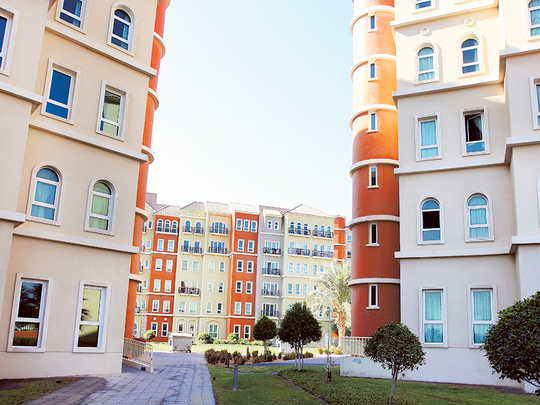
Dubai: The pilot programme to introduce a star rating system for buildings in Dubai — and by which facilities management services can be assessed — is at an advanced stage. With all the elements falling into place, it should soon go live, according to a top industry official.
It was in April last that the Middle East Facilities Management Association (Mefma) took on the mantle for the rating system. “We have held meetings with Rera (Real Estate Regulatory Agency) to develop the benchmarks on which the rating system would function,” said Jamal Lootah, President of Mefma and CEO of Imdaad, one of the key FM companies in the marketplace. “It is only by assessing how well or otherwise a property or building is equipped and functions can inferences be drawn for the benefit of tenants or owners. This is what the rating system seeks to achieve.”
The core elements of the scoring will hinge on a building’s internal safety standards, longevity parameter, productivity and the return on investment it can offer stakeholders.
In recent months, the topic of facilities management services — and the charges that should accompany them — have been taking up top billing in the local realty market’s agenda. Last month, Rera went live with the ‘Service Charge and Maintenance Index’ for properties within Dubai’s freehold locations. (Structurally, it bears close similarity to the rental index that is overseen by Rera.)
“We have Rera setting the template for what the base service charges are in relation to a particular location,” said Lootah. “But the initiative requires all the other stakeholders to provide their own inputs to make sure the index data is as updated and transparent as possible. This has to be a regular process to be truly reflective of market movements.”
The Rera sponsored index is based on data audited by the agency and based on information verified with owners associations and developers. (It has been divided into four main categories — apartments, offices, shops and villas and the level of service and maintenance charges is determined on a dirham per square foot formula.)
“This has created more transparency in as much as (property) owners can see the figures that have been approved by Rera,” said P.R. Vijayakumar, Managing Director of Pacific Owners Association Management Services. “The approval from Rera of service charges are mandatory as per law, and owners can refuse to pay if such approvals are not in place before invoices are sent out.”
According to Lootah, there is a more rational approach on the part of developers in using low services charges in their sales brochures as a hook to pull in buyer interest for a new project. “Earlier, it was a competitive tool and most of the advertised service charges were not sustainable for the general upkeep of the property,” said Lootah. “Now, with a few exceptions, developers prefer working closely with FM companies in setting service charges more in tune with market realities.
“Sure, there are inflationary pressures, but that does not mean FM companies have to effect hikes as soon as it happens. With careful planning, future inflation rates can be accounted for in setting the tariffs and to which all interested parties can agree upon.
“A lot of the uncertainties that investors had during 2009-12 about the local property are no longer there, and that’s been a help in discussions FM companies have in setting rates.
“Also, longer term contracts help in absorbing some of the ups and downs in inflationary cycles — Imdaad’s preference is for a minimum of three years and there are ones stretching to ten years. Those under three are a distinct minority on our books now.”












